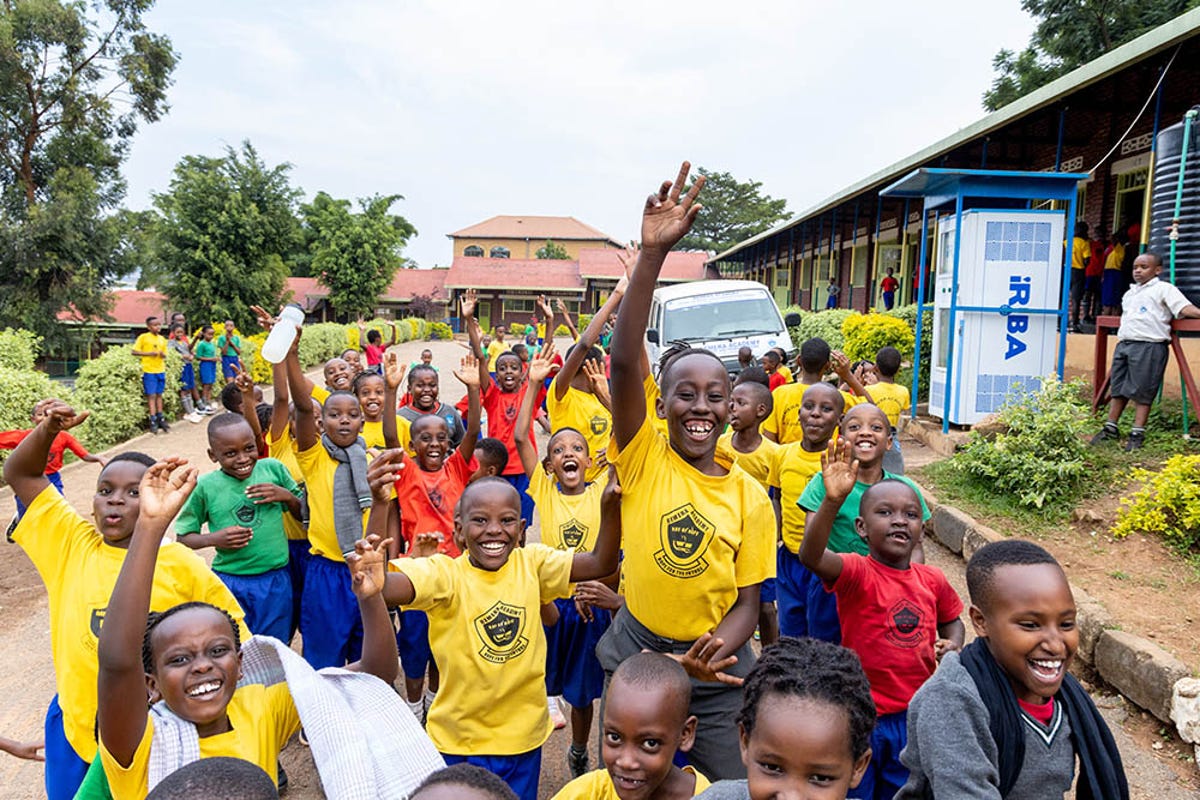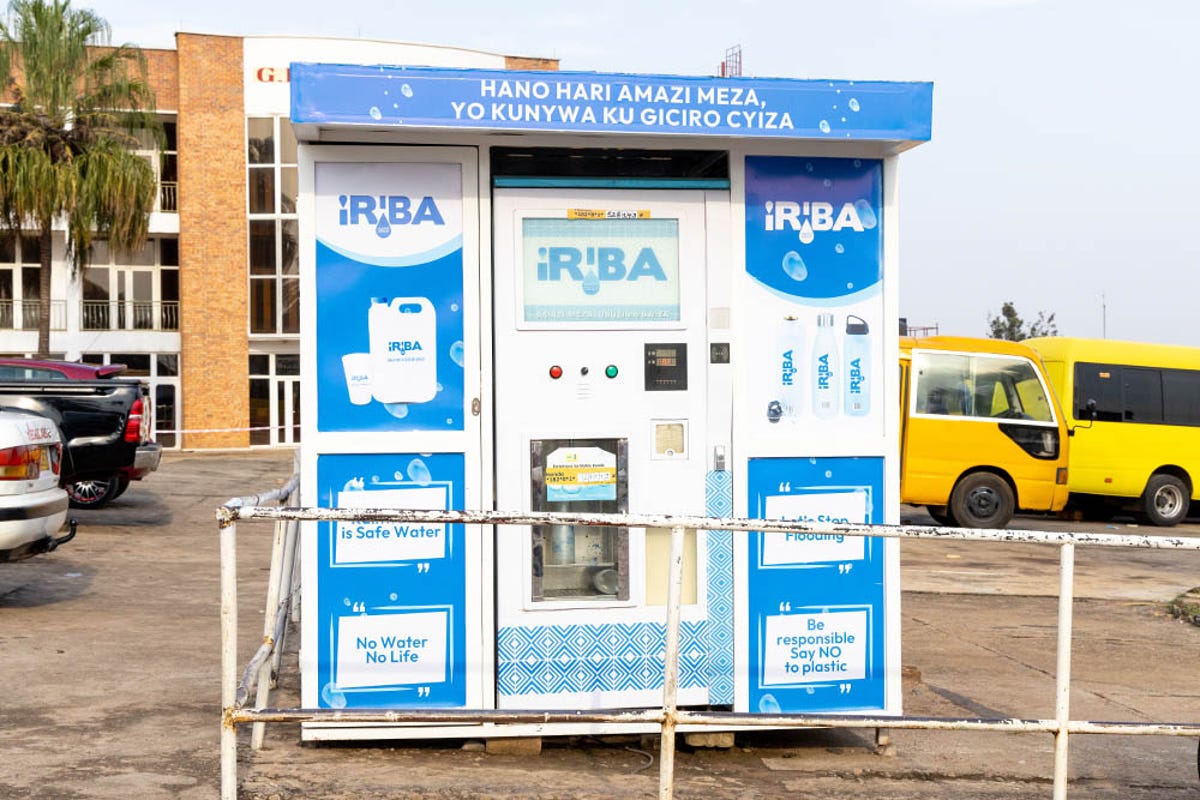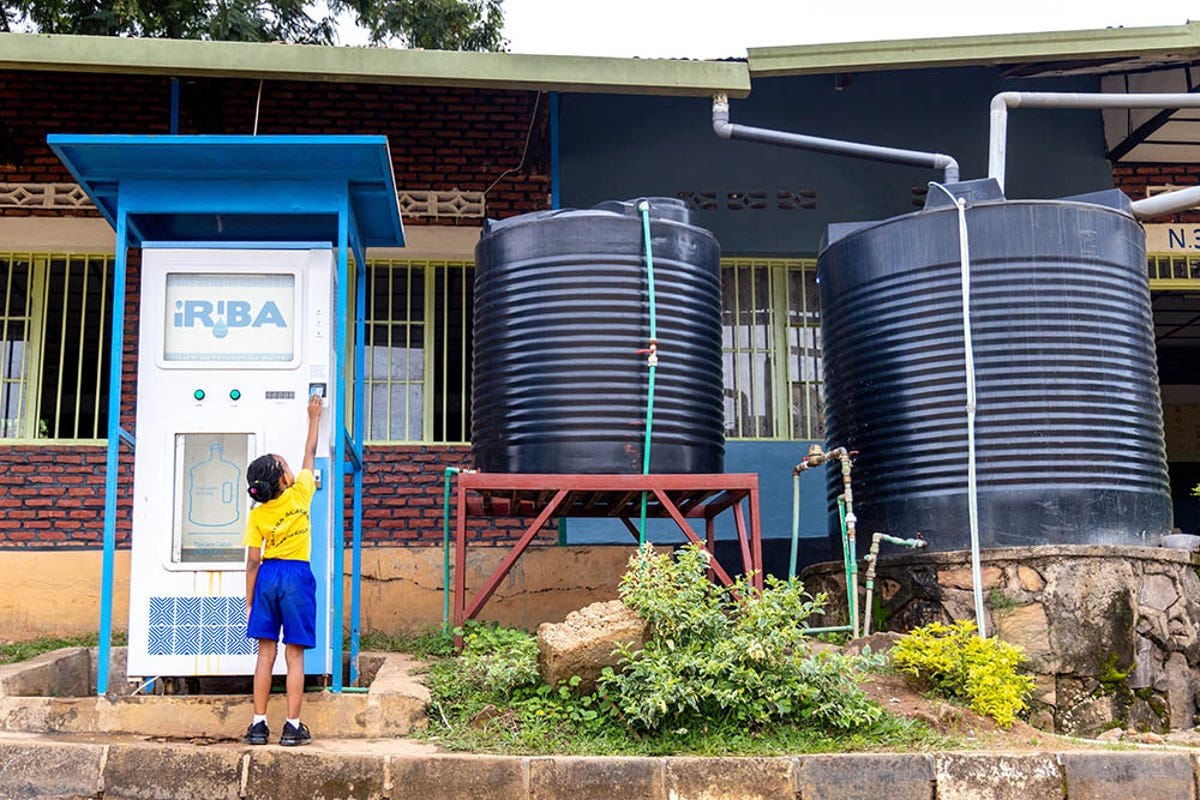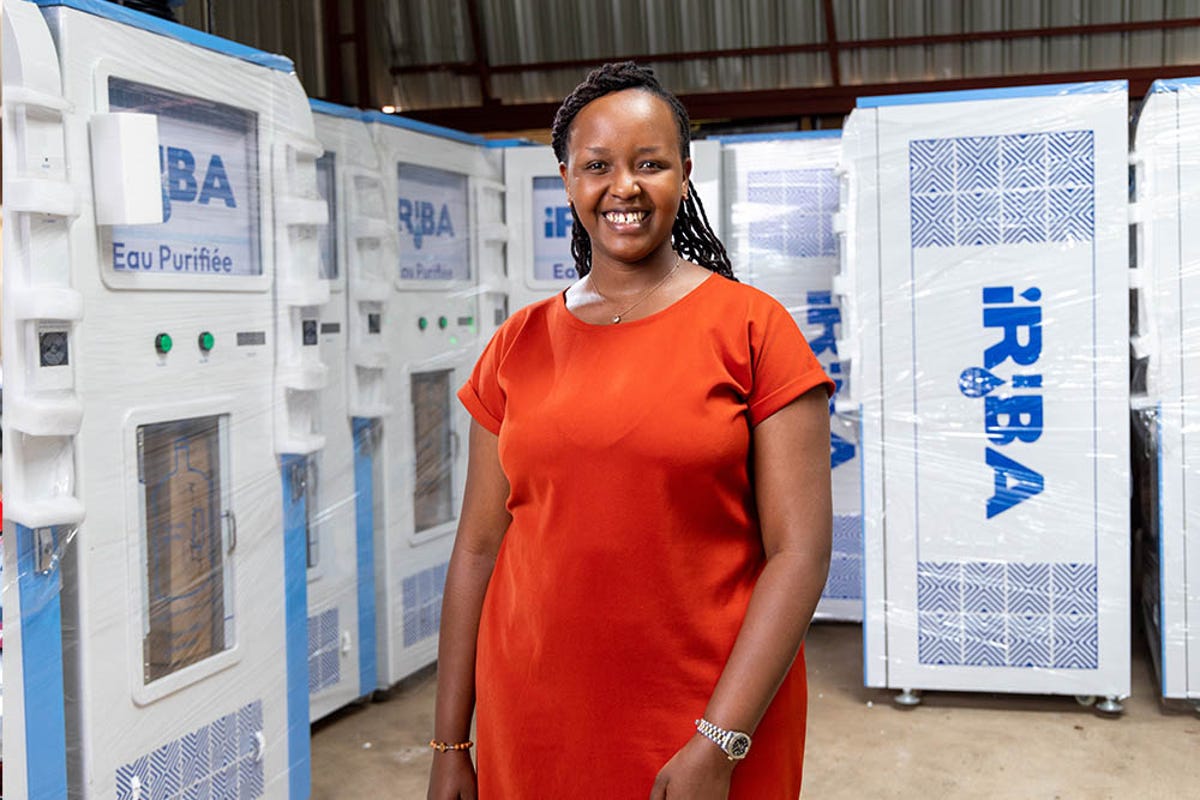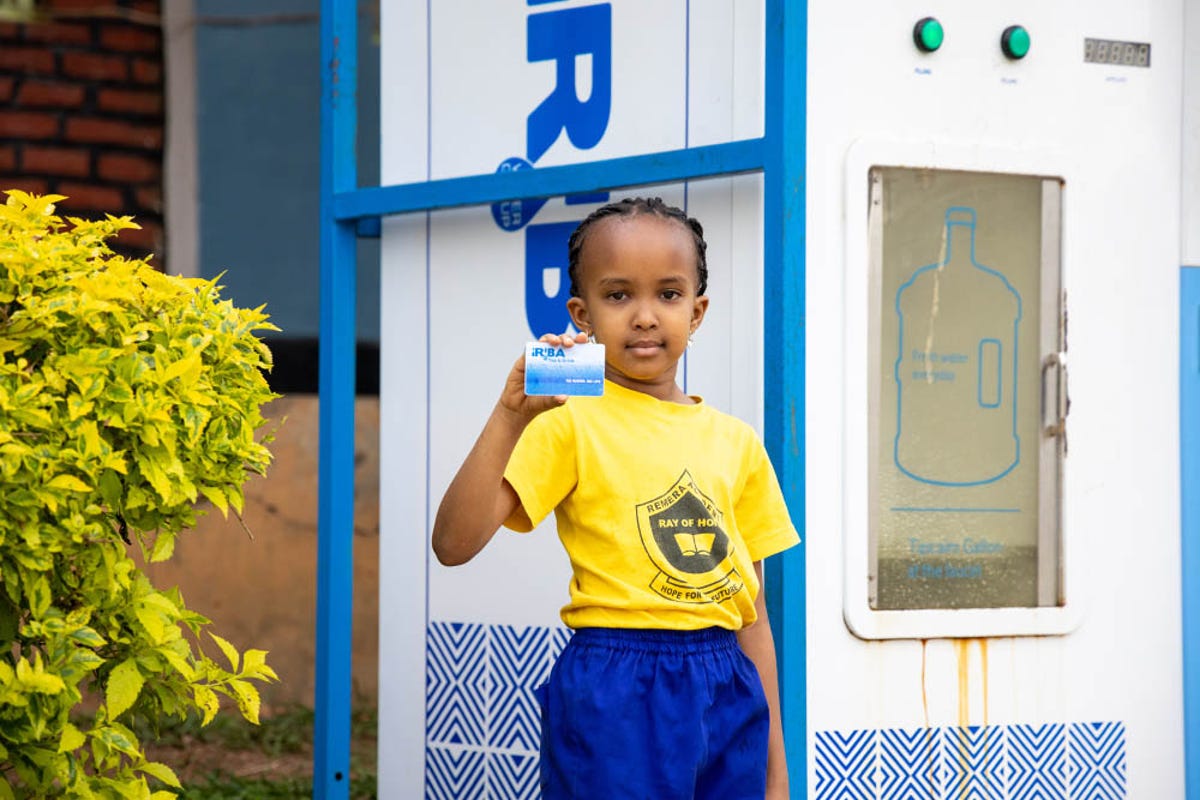Fellow Portrait
Yvette Ishimwe
IRIBA Water Group
_(1).jpg?&quality=80&auto=webp&width=1000)
IRIBA Water Group is a social enterprise addressing safe water access with a climate-smart water solution for low-income communities across Africa.
Francophone Sub-Saharan Africa
Rwanda
Fellow
2023 Fellow | 2025 Impact Awardee
Updated April 2025
Half of Rwandans can’t access safe drinking water
A myriad of challenges originate with lack of access to safe, clean water. In Sub-Saharan Africa, 320 million people lack such access. In Rwanda, for example, only 57 percent of the population can find potable water within 30 minutes of home (source: UNICEF) and children lose 443 million school days each year because of water-related illnesses.
Yvette Ishimwe experienced this when her family relocated from Kigali to a rural village. “There was no water for home use or even for drinking,” she says. “Water was expensive and it was difficult to get clean water.”
She researched ways to obtain this vital resource. Her family could hire a truck to pump water from a nearby lake and bring it to their home. But the lake water wasn’t drinkable, so she looked into purification solutions and found a kit that cost USD$400. “My mom gave me the money. They installed it on our water tank, so my family was able to get clean water. Then the neighbors started to come. After three days, our compound was full of people coming in to fetch water from our home.”
I got into the water industry after an experience I had with my family of searching for drinkable water. No one should have to die or get sick for a lack of something so basic and so achievable as safe water. I believe that water is life, and life is a human right.
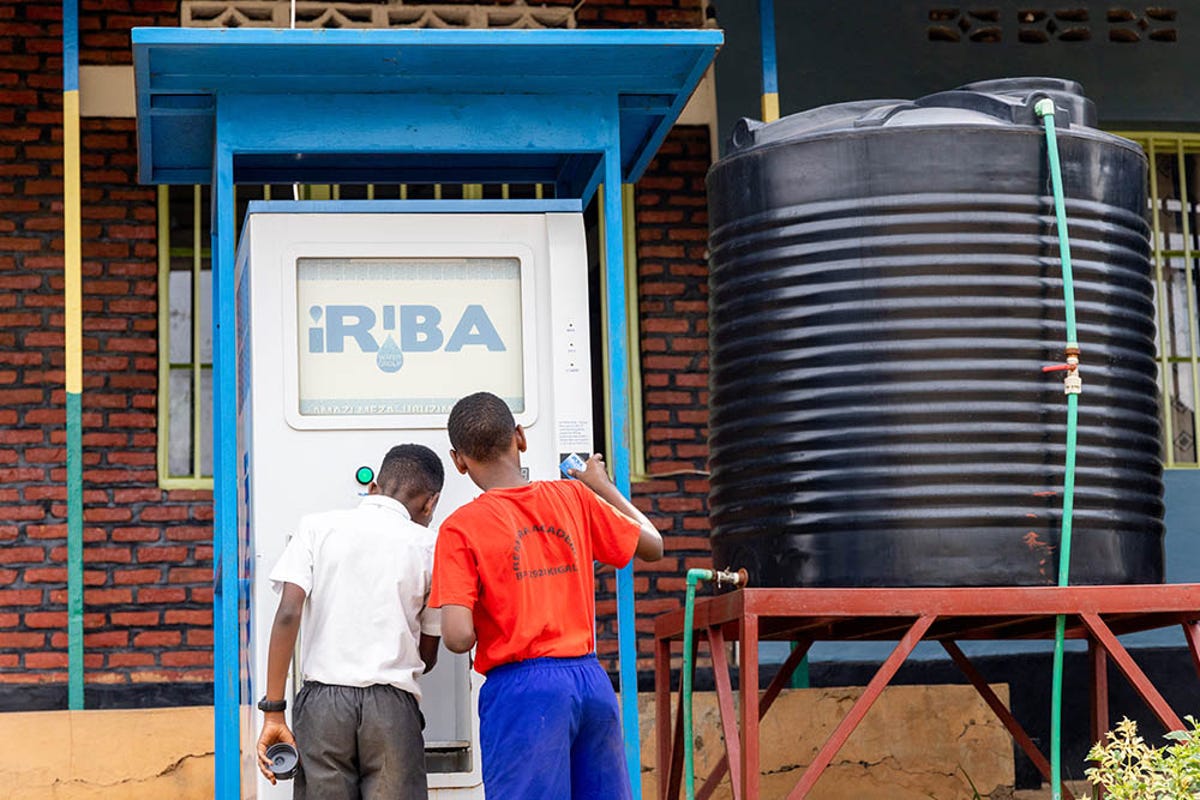
A one-village water solution expands
Yvette carried the memory of this experience with her when she attended university and discovered that the water access problem went far beyond her community. She presented the solution she had created for her family at a business competition and received USD$10,000 to implement the idea on a wider scale. The money enabled the village to build a solar-powered water plant to pump water from the natural spring in the valley and pipe it uphill in water kiosks where people could easily access it from, instead of having it trucked in from the Lake.
Inspired by what she had accomplished in her village, Yvette started Iriba Water Group, a social enterprise that tackles the problem of drinking water scarcity in Rwanda and other low-income African countries. The company’s Tap & Drink systems, installed in public places like markets, parking lots, and schools, connect to and purify municipal tap water. The public can access water with a “water ATM card” and Iriba tracks usage with a software management system. Franchisees run the systems, complementing the company’s core mission by providing local jobs.
Inside of the ‘water ATM’ is water purification technology that can be connected to any source. It can be tap water, borehole water, anything. It’s purified and you turn on the tap with the card and get the water you need.
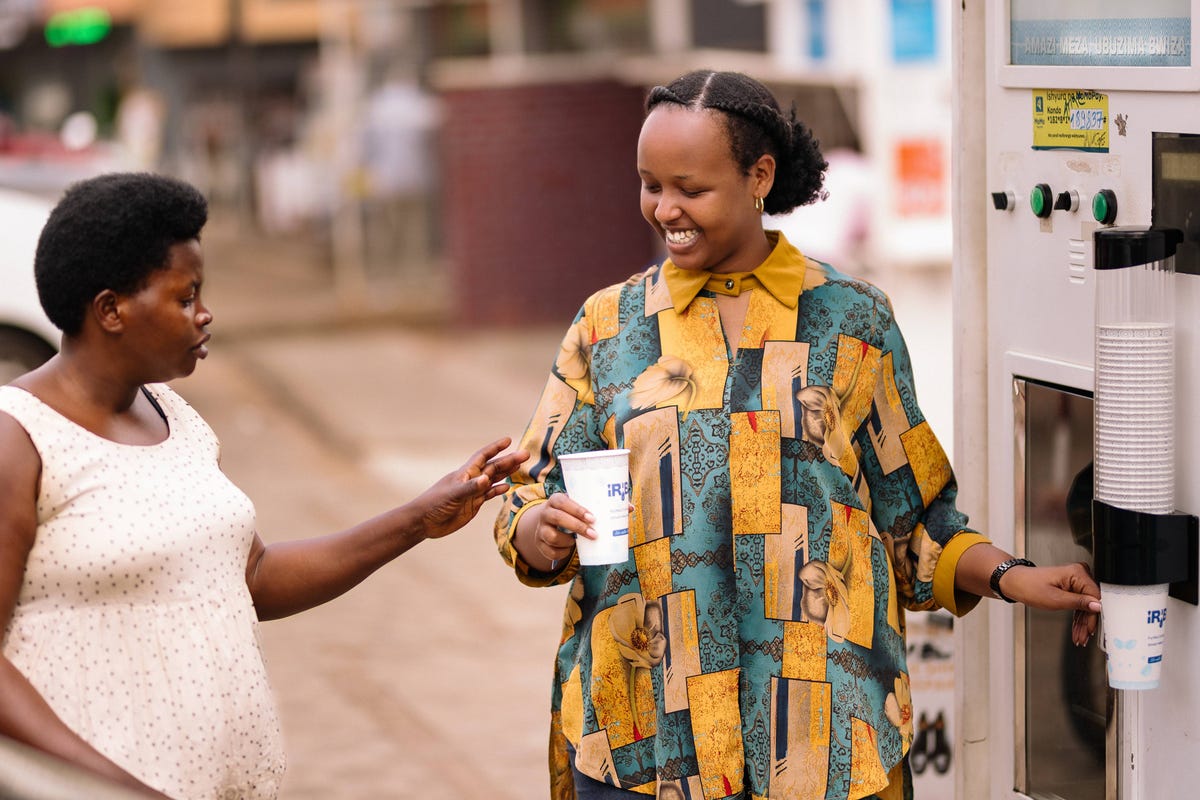
Iriba takes on Africa’s water access challenge, one drop at a time
Since 2017, the company’s 203 have brought safe, affordable water to more than 500,000 people in Rwanda, Democratic Republic of the Congo, and Central African Republic. Along the way, it has created 194 jobs, of which 86% are held by women, and prevents CO2 emissions as a result of climate-smart interventions.
On tap in the next five years are plans to reach 5,000,000 people with affordable, safe drinking water, create 2,000 jobs, and reduce emissions by a million tons yearly.
These numbers represent real human impact. Incidences of water-related illnesses such as typhoid and diarrhea have fallen dramatically in schools, directly translating to fewer school days missed. “We're talking about hundreds of millions of people in sub-Saharan Africa with no access to water and 517,000 is just a drop in the sea when you compare it to the size of the problem. The need is huge and abundant, but we're just getting started.”
People often spent an entire day without drinking water because they couldn't find safe or affordable options. Our customers no longer have issues with being over-thirsty, which translates into kidney issues. Since IRIBA came, they drink water more often.
